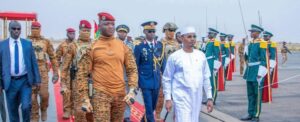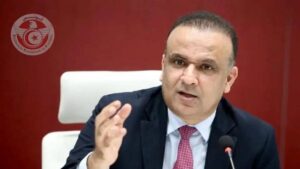Does the AU have the means to pursue its priorities after the Addis Ababa Summit ?
African leaders gathered in Addis Ababa on February 17th and 18th, 2024, for the annual African Union (AU) summit. It was an opportunity for them to address the numerous challenges facing the continent and decide on the best way to strengthen the AU’s intervention in these various crises.
Civil conflicts are intensifying in many regions of Africa, as is terrorism. Interstate war is becoming an increasingly acute risk in some areas. Conflict prevention and resolution are becoming more difficult as collective response mechanisms weaken worldwide.
In 2024, the AU will need to explore new ways to address governance crises ; commit to saving Sudan; resolve conflicts in Ethiopia and stabilize the DRC; keep diplomatic channels open in the central Sahel; prioritize the Anglophone conflict in Cameroon; update its partnership with Somalia, and help prepare South Sudan for elections.
The African Union (AU) summit took place on February 17th and 18th, 2024, as millions of lives are still threatened on the continent by the proliferation of conflicts. From Mali to Mozambique, sociopolitical crises are challenging many countries, while state collapse looms in Sudan after ten months of fierce power struggle between the army and the Rapid Support Forces (RSF) paramilitary.
The possibility of major interstate wars is also real: tensions in the Horn of Africa and the Great Lakes region are particularly alarming. The AU has made ambitious institutional commitments and has equipped itself with mediation and peacekeeping tools, but it lacks the political and financial strength to fully leverage them, partly due to the often weak support of member states.
Nevertheless, the organization plays an important role in advocating African viewpoints in global debates and in helping address continental peace and security challenges, which seem to be proliferating day by day. Its annual summit is an opportunity for member states to develop a program to address these issues while strengthening its capacity to do so.
Many of the institutional challenges facing the AU are common to other multilateral organizations in an era of growing international friction. Member states are turning inward, closely guarding their sovereign prerogatives instead of investing in collective security and countering geopolitical tensions that undermine cooperative efforts.
For the AU, money is also a major constraint. The organization relies heavily on international funding, much of which comes from the European Union, exposing it to African criticism for its lack of independence in this regard.
Despite all its handicaps, the AU occupies, in peacekeeping and continental diplomacy, the place that Africans are willing to give it. The G20 forum of the world’s largest economies recognized its important role in September 2023 when it made the AU one of its permanent members.
This allowed the AU to sit at the table for discussions on major issues for African states, such as reforming international financial institutions. Three months later, the United Nations Security Council gave the organization another significant victory by paving the way for the use of mandatory contributions to finance peacekeeping operations.






